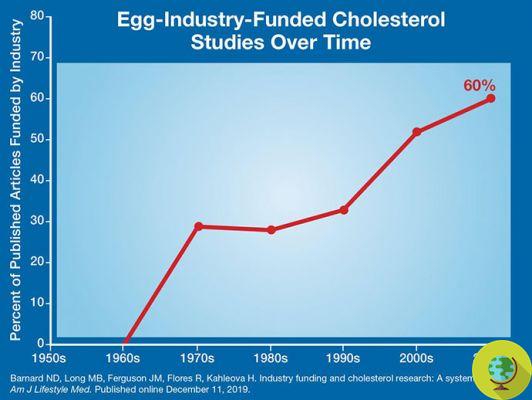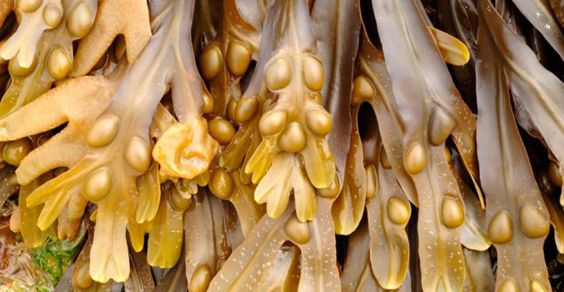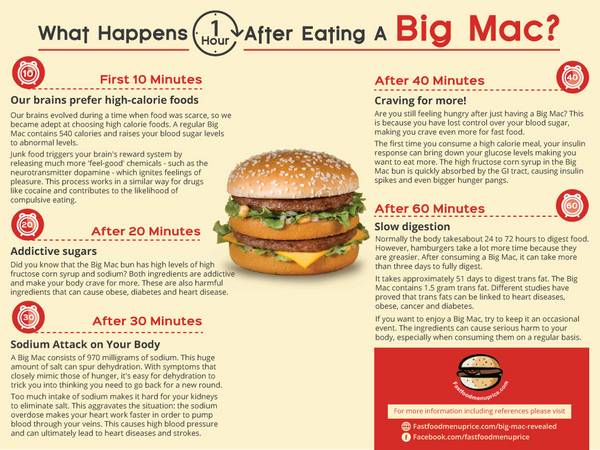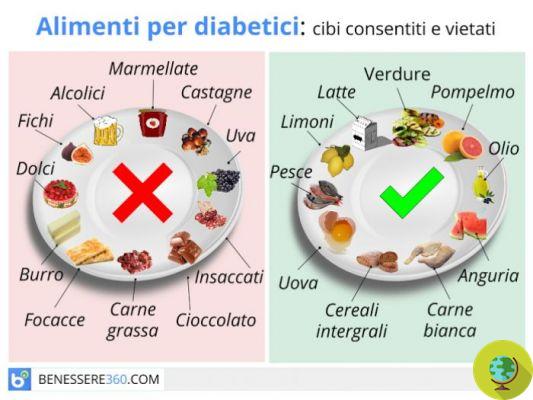A new study conducted in the UK has discovered the cellular mechanisms that promote weight loss following the practice of fasting
Don't store avocado like this: it's dangerousIn a new study, a research team from the University of Warwick (Great Britain) has investigated the cellular mechanisms that would be responsible for weight loss following the practice of fasting.
In recent years we talk more and more often about fasting as a useful system for detoxication but also to the weight loss. There are different types: intermittent fasting, 16: 8 fasting, evening fasting, mime fasting, etc.
Evening fasting diet: how it works, what to eat and contraindications
16: 8 intermittent fasting diet really helps you lose weight. I study
Fasting mimicking diet, everything you need to know
These are not, as some think, fleeting fashions. In fact, there is a series of scientific evidence that fasting not only promotes weight loss, but is also able to improve health by reducing the risk of developing diabetes, cardiovascular disease and neurodegenerative diseases. Of course this it must be done wisely, better if followed by a specialist.
Some studies claim that the body responds to intermittent fasting, alternate day fasting, and other forms of periodic calorie restriction usingautophagy, a process of cellular self-recycling.
The new research of the team led by the professor John Nezis of the School of Life Sciences at the University of Warwick, has analyzed the mechanisms of intermittent fasting and has succeeded in discovering how cells activate autophagic genes during the period of caloric restriction.
It took six years of investigation to complete the study which showed what they are like three proteins called Sequoia, YL-1 and Sir2, to interact with the cytoplasmic protein correlates all'autofagia Atg8a.
It is during these interactions that the Arg8a protein is recruited into the cell nucleus to control the transcription of autophagic genes, promoting the fat burning.
"This is the first study that uncovers a nuclear role of the cytoplasmic protein Atg8a," Professor Nezis told ZME Science.
In the following photo you can see the cells that express the GFP-Sequoia-LIR mutant (green nuclei) and activate autophagy (indicated by red).
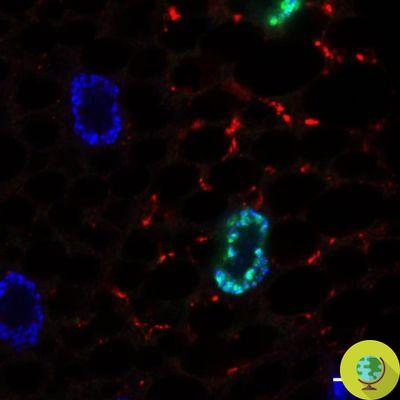
© University of Warwick.
The results of this study could help interventions aimed at maintaining a correct body weight. Have a better understanding of how theautophagy in the bodyin fact, it can have important implications for diet and nutrition.
And Professor Nezis has already announced that he wants to move on:
“We continue our research on how cells respond to fasting. Obesity is a significant risk factor for increased morbidity and mortality. Fasting has been a trend in recent years to maintain a healthy weight "
The new study was published in the journal Cell Reports.
Sources: Cell Reports / ZmeScience








